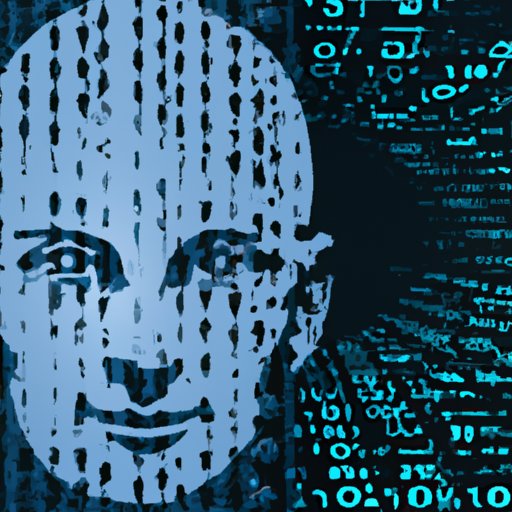Introduction
As artificial intelligence (AI) continues to make rapid advances in technology, it has become increasingly important to consider the ethical implications of its use. AI is defined as “the ability of a machine or computer program to think and learn” (Oxford Languages). In this article, we will explore the ethical implications of AI and examine the potential risks associated with its use. We will also evaluate the need for new regulations to govern AI use.
Analyzing the Ethical Implications of Artificial Intelligence
AI has been a source of debate in the philosophical and ethical communities for some time now. One of the key issues raised by AI is the concept of “machine morality” – that is, whether machines can be programmed to act ethically. According to Professor Alan Winfield, a roboticist at the University of the West of England, “We are on the cusp of robots being able to make moral decisions, and so there are ethical questions about how this should be done” (BBC News). This poses interesting questions about who should be responsible for making sure that AI is programmed to make ethical decisions.
Another major ethical concern surrounding AI is its potential impact on privacy and security. With the widespread use of AI in products such as facial recognition software, there are worries that personal data could be misused or abused. As Professor Winfield notes, “We must ensure that AI does not lead to a surveillance society where our every move is monitored” (BBC News). As such, it is essential that appropriate measures are taken to protect individuals’ privacy and security in the context of AI.

Examining the Potential Risks Associated with AI
In addition to raising ethical concerns, AI also carries certain risks. One of the most significant of these is the potential for AI to replace human labor. As AI becomes more advanced, there is a risk that it could be used to automate jobs that were previously performed by humans. This could have a negative effect on employment levels and wages, particularly for low-skilled workers. As Professor Winfield explains, “there is a danger that AI technologies could lead to job losses, especially for those in lower-paid roles” (BBC News). It is therefore essential that the potential impacts of AI on employment are carefully considered.
Another potential risk associated with AI is the possibility of unintended consequences. As AI becomes more sophisticated, it is possible that it could be used in ways that its creators did not intend or anticipate. This could have potentially serious consequences, particularly if AI is used in areas such as healthcare or finance. As such, it is essential that AI is used responsibly and that the potential risks are carefully considered before deploying it.

Examining the Role of Regulation in Governing AI Use
Given the ethical and practical concerns surrounding AI, it is clear that some form of regulation is needed to govern its use. Currently, there are a number of existing regulations that apply to AI, such as the General Data Protection Regulation (GDPR) in the European Union. However, these regulations may not be sufficient to address the potential risks posed by AI. As Professor Winfield argues, “We need to develop a regulatory framework that takes into account the ethical implications of AI” (BBC News). Therefore, it is essential that new regulations are developed to ensure that AI is used responsibly and ethically.
Conclusion
In conclusion, the ethical implications of AI are complex and far-reaching. AI raises a number of ethical questions, such as the concept of “machine morality” and the potential impact on privacy and security. It also carries certain risks, including the potential for AI to replace human labor and the possibility of unintended consequences. Therefore, it is essential that appropriate regulations are developed to govern the use of AI and ensure that it is used responsibly and ethically.
(Note: Is this article not meeting your expectations? Do you have knowledge or insights to share? Unlock new opportunities and expand your reach by joining our authors team. Click Registration to join us and share your expertise with our readers.)
